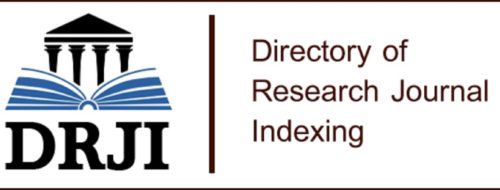Transición del servidor público de activo a pasivo por causas de jubilación desde la transcomplejidad
DOI:
https://doi.org/10.56124/corporatum-360.v7i14.003Palabras clave:
Formación policial, jubilación, gestión de personal, emprendimiento, empresas privadasResumen
La finalidad de la presente investigación fue el análisis de la transición los servidores de la Policía Nacional de estado activo a pasivo, al acogerse a la jubilación, toda vez que tienen formación competencial integral, pues involucra competencias profesionales sustentadas en habilidades duras de atención y servicio ciudadano y blandas de pensamiento crítico, trabajo en equipo, orden y disciplina. Debido al grado de complejidad y especificidad de sus capacidades profesionales de orden público a las que se entregan gran parte de sus años de vida; al llegar a la jubilación, presentan problemas de iniciar un nuevo estilo de vida. En tal razón la presente investigación se abordó desde la orientación epistemológica de la Teoría de la Transcomplejidad, con enfoque cualitativo. Los sujetos de estudio fueron 10 funcionarios Policiales a quienes se les aplicó una entrevista mediante técnicas de saturación, descripción, contraste y triangulación; sustentando de esta manera el análisis de contenido en el llamado contexto generativo. Los resultados revelaron que el proceso de desvinculación de los sujetos de estudio no es amigable y que el área de talento humano, no realiza acciones para romper el estereotipo de activo a pasivo, por un nuevo esquema de activo a activo. Toda vez que al desvincularse son personas productivas, con alta experiencia que están en la capacidad de generar nuevas fuentes de empleo, por lo que el departamento mencionado debe asumir la responsabilidad de desarrollar en ellos competencias de emprendurismo en empresas privadas, contabilidad empresarial, tributación y liderazgo para la creación de negocios.
Descargas
Citas
Asamblea Constituyente. (30 de 03 de 2009). Ley de Seguridad Social de la Policia Nacional. https://www.ministeriodegobierno.gob.ec/wp-content/uploads/downloads/2014/03/LEY-DE-SEGURIDAD-SOCIAL-DE-LA-POLICIA-NACIONAL.pdf
Asamblea Constituyente. (06 de 10 de 2010). Ley Orgánica del Servidor Público https://www.ecuadorencifras.gob.ec/LOTAIP/2017/DIJU/octubre/LA2_OCT_DIJU_LOSEP.pdf.
Asamblea Constituyente. (s.f.). Constitución de la República del Ecuador. https://www.asambleanacional.gob.ec/sites/default/files/documents/old/constitucion_de_bolsillo.pdf.
Andrade, J. A. (2023). Transdisciplinariedad: un enfoque innovador para la investigación y el conocimiento de los transmétodos. Revista Multidisciplinaria de Investigación, 2(1), 73-93. https://revistas.ues.edu.sv/index.php/remi/article/view/2749/2737
Balza, A. (2011). Complejidad, Transdisciplinariedad y Transcomplejidad. Los Caminos de la Nueva Ciencia. Universidad Nacional Experimental “Simón Rodríguez”. Venezuela: APUNERS.
Chiavenato, I. (2009) Gestión de Talento Humano. Editorial Mc Graw Hill Companies, Inc. México D.F.
Herrera, M. (2008). La jubilación patronal (Bachelor's Thesis). Retrieved from. http://dspace.ucuenca.edu.ec/handle/123456789/9001consultado 10/05/2021
Meza, D. (2009). Manual para el Fortalecimiento de la Actividad Académica del Personal Docente de la Escuela de Bioanálisis. Sede Aragua: Universidad de Carabobo. Facultad de Ciencias de la Salud. Escuela de Bioanálisis. Departamento Socio epidemiológico. (Trabajo de Ascenso para optar a la Categoría de Profesora Agregada). Mención Publicación. Maracay. Aragua
Meza, D (2020). Reconfiguraciones Conceptuales para un Modelo de Educación Universitaria desde la Visión Transcompleja en Tiempos de Crisis Mundial y Planetaria. Signos Ediciones. Venezuela.
Ministro de Gobierno, (2020) Reglamento de carrera profesional para Servidores Policiales. https://documentacion.ministeriodegobierno.gob.ec/Juridico/Reglamento-Carrera-Profesional-Servidores-Policiales.pdf
Rodríguez. L, y Casper. W. (2015). Tesis Doctoral Estudio cualitativo fenomenológico, sobre los aspectos subjetivos del Proceso de la jubilación, en algunos oficiales de la policía de puerto rico: retorno o no retorno al mundo policial. Universidad Del Turabo. https://search.proquest.com/openview/0c2f908256ea490034b600f488021acb/1?cbl=18750&diss&loginDisplay=true&pq-origsite=gscholar consultado 10/05/2021
Sotolongo, P. y Delgado, C. (2016). La complejidad y el diálogo transdisciplinario de los saberes. Trans-Pasando Fronteras, 10(11).
Schavino, N. y. (2010). De la teoría a la praxis en el enfoque integrador transcomplejo. Proc. del Congreso Iberoamericano de Educación Metas 2021, Buenos Aires, Argentina, 13-15 de septiembre 2010.
Taylor, S. y Bogdan, R. (1992). Introducción a los métodos cualitativos. Ediciones Paidos. 1ra reimpresión España. pp 16–20,108–110.
Urrias Murieta, M. Cabrera García, M.J. y Orduño Acosta, E. (2019) Ediciones ITSON Instituto Tecnológico de Sonora. Ciudad Obregón, Sonora, México.
Descargas
Publicado
Cómo citar
Número
Sección
Licencia
Derechos de autor 2024 Revista Científica Arbitrada Multidisciplinaria de Ciencias Contables, Auditoría y Tributación: CORPORATUM 360 - ISSN: 2737-6443.

Esta obra está bajo una licencia internacional Creative Commons Atribución-NoComercial-CompartirIgual 4.0.


5.jpg)













